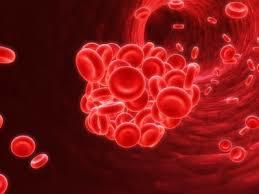Metrorragia (sangrado prolongado)

Metrorrhagia - Abnormal Bleeding
Introduction
Metrorrhagia is abnormal bleeding that occurs between periods or that is not associated with menstruation. There are many causes of metrorrhagia, including hormone imbalance, abnormal growths, pregnancy complications, and infection. It is important to contact your doctor if you experience metrorrhagia. There are a variety of treatments for metrorrhagia, depending on the cause of the condition.
Anatomy
The menstrual cycle is a regular process that is regulated by hormones. The average menstrual cycle lasts around 28 days, but it varies among individuals and may be either longer or shorter. Each month the uterine lining thickens as it builds up extra blood and tissue in preparation for a potential fertilized egg. An egg that is fertilized by a sperm cell may implant itself in the nourishing uterine lining and develop into a baby. An unfertilized egg or a fertilized egg that does not implant in the uterus passes through the reproductive system. During menstruation prostaglandins, a hormone-like substance, cause the uterus to contract. The uterine lining sheds and the blood leaves the body through the vagina.
Causes
Metrorrhagia is bleeding that occurs between periods or abnormal bleeding that is not associated with menstruation. There are many causes of metrorrhagia. It may be caused by hormone imbalances related to birth control pills or problems with the hormone producing glands or areas in the brain. Certain conditions in the uterus or cervix can cause abnormal bleeding, including fibroids or polyps, scar tissue, inflammation, or cancer. Endometriosis, a condition in which the uterine lining tissue grows outside of the uterus, can cause metrorrhagia. Infections, such as genital warts or yeast infection may cause bleeding. A miscarriage or an ectopic pregnancy that is growing abnormally in the fallopian tubes can cause bleeding. An intrauterine device (IUD) used for birth control can cause metrorrhagia. Certain chronic conditions such as diabetes, blood clotting disorders, and thyroid disorders can contribute to metrorrhagia. Additionally, blood-thinning medications may cause bleeding.
Symptoms
The main symptom of metrorrhagia is light to heavy bleeding between regular menstrual periods. You may or may not experience cramps or abdominal pain with bleeding. A miscarriage or ectopic pregnancy may cause severe cramps with bleeding.
Diagnosis
You should contact your doctor if you experience bleeding between periods or bleeding after you have completed menopause. Your doctor can examine you while you are bleeding. Do not delay an appointment because you are bleeding. It is helpful to keep a record of your periods and irregular bleeding to bring to your appointment.
Your doctor will review your medical history and symptoms. Your doctor will perform a physical examination. During your pelvic examination, cultures may be taken to test for infection or sexually transmitted disease. Blood tests may be used to test your thyroid and hormone levels. You may be tested for pregnancy. A Pap smear may be taken to check for cervical cancer.
An ultrasound may be used to create pictures of your reproductive organs to allow your doctor to check for abnormal growths. For an ultrasound, your doctor will place a conduction device on your lower abdomen or gently place a conduction wand in your vagina. The conduction device transmits sound waves to a computer that creates images on a video monitor.
An endometrial biopsy can be used to obtain cells from your uterus to check for hormone imbalances or abnormalities. There are a few types of biopsy methods, which may be performed in your doctor’s office or as an outpatient with general anesthesia.
Treatment
The treatment that you receive depends on the cause of your metrorrhagia. Medications may be used to treat hormone imbalances, infections, and chronic medical conditions. Surgery may be used to treat polyps, endometriosis, or fibroids. Cancer may be treated with surgery, chemotherapy, radiation, or a combination of treatments. An IUD may need to be removed. Women that experience a miscarriage or ectopic pregnancy need immediate medical treatment. A dilation and curettage (D&C) may be used to remove remaining tissue after a miscarriage.
Prevention
It is help is helpful to keep a record of your menstrual periods. You should note any changes in your menstrual pattern, including abnormal bleeding, and bring your records to your doctor’s appointment. Females over the age of 18 or who are sexually active should receive annual Pap smear tests and pelvic examinations.
Am I at Risk
Females that have begun menstruating can experience metrorrhagia. It is especially concerning for post menopausal women because the risk of malignancy increases with age.
Complications
It is important to contact your doctor if you experience metrorrhagia. In some cases, it may be associated with a serious condition, such as cancer. Women that experience symptoms of miscarriage or ectopic pregnancy should contact their doctors immediately.